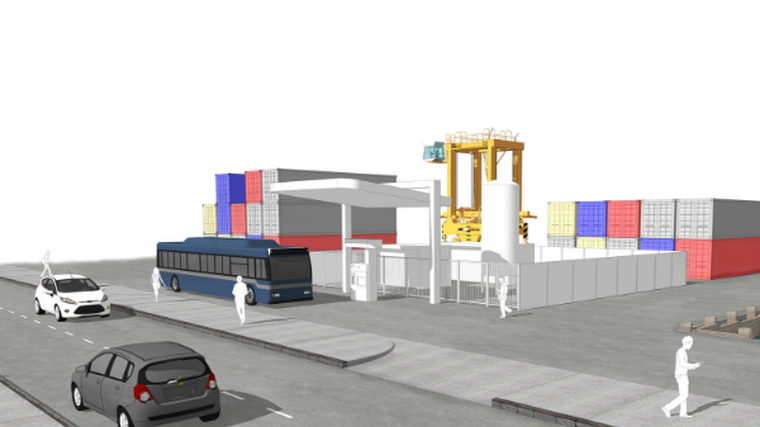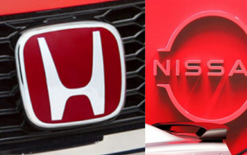POAL looks to hydrogen

Ports of Auckland Ltd (POAL) has revealed a plan to build a hydrogen production and refuelling facility at its Waitematā port. The fuel-cell facility is planned to be operational by the end of 2019.
POAL, in partnership with Auckland Council, Auckland Transport and KiwiRail, will also be investing in hydrogen fuel-cell vehicles including port equipment, buses and cars as part of the project.
“We have an ambitious target to be a zero-emission port by 2040,” says POAL chief executive Tony Gibson. “To meet that target, we need a new renewable and resilient power source for heavy equipment such as tugs and straddle carriers, which are difficult to power with batteries.
“Hydrogen could be the solution for us as it can be produced and stored on-site, allows rapid refuelling, and provides greater range than batteries.”
In order to produce hydrogen, POAL will use a process that uses electrolysis to split water into hydrogen, which is then stored for later use, and oxygen, which is released into the air.
“If this trial is successful, the technology would have a very wide application,” adds Gibson. “It could help Auckland and New Zealand towards energy self-sufficiency and our emission-reduction goals.
“Trucks, trains and ferries could also run on hydrogen – something which is already being done overseas. This would be a significant benefit for the community. Hydrogen-powered vehicles are quieter and emit nothing more than clean water.”
Mayor of Auckland, Phil Goff, welcomes the trial and says it shows the city’s desire to lead on climate-change action and meet emissions-reduction targets.
“With 40 per cent of emissions in Auckland coming from our transport system, alternative energy sources to power vehicles, such as electric and hydrogen, are critical to meeting the target of global warming to 1.5 degrees,” he says.
“With infrastructure in place, hydrogen has the potential to power our buses and other parts of our fleet reducing global emissions and cutting back on pollution in Auckland, such as on Queen Street where carbon levels are very high.”
KiwiRail’s acting chief executive, Stephen Town, says: “We are committed to a sustainable future and have set a goal to be carbon neutral by 2050. While rail is an inherently sustainable form of transport with 66 per cent fewer carbon emissions than heavy road freight, new fuel sources like hydrogen have enormous potential for the future of transport in New Zealand.
“Just weeks ago, two hydrogen-powered trains with a range of 1000km per tank began operating commercial services in Germany. If successful with passengers, there’s no reason why the next development couldn’t be hydrogen-powered freight trains.





